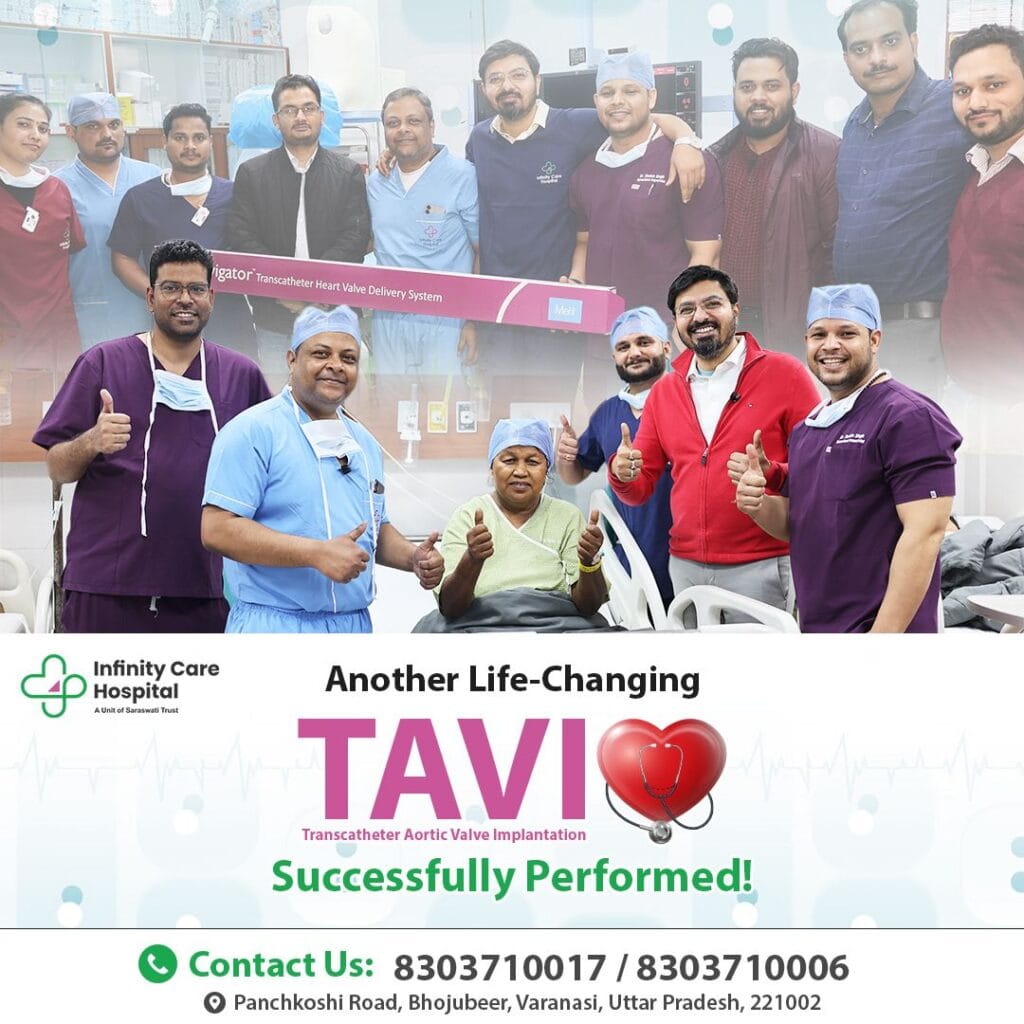Hypertension is a rapidly growing disease in children and young people. High blood pressure is a factor in many other dangerous diseases in the body. Dr. Abhishek Vikram Singh, director of Infinity Care Hospital, is telling about how high blood pressure affects our body and other organs including the heart. High blood pressure is also known as hypertension. This generates a high pressure of blood pushing on the walls of the blood vessels. In this scenario, the heart has to pump very hard and the arteries are under a lot of stress as high-pressure blood starts flowing through them. Due to unhealthy lifestyles, this problem is spreading even among children. Lifestyle changes and the inclusion of healthy low-fat foods in the diet, and regular physical activity can reduce the risk of high blood pressure.
Symptoms:
No significant symptoms have been observed for hypertension. But some signs of high blood pressure in severe cases are:
a) Headache
b) Blurred vision
c) dizzy head
d) nose bleeds
e) Fluttering and loud heartbeat (palpation)
f) scream
g) Epilepsy
h) Chest pain
i) shortness of breath
Hypertension Management Guidelines:
There are some guidelines that should be followed by the parents:
Your child’s blood pressure should be measured every year after the age of 3. This test is necessary for children who have obesity. Take medication for increased blood pressure, kidney disease, diabetes, aortic arch obstruction or history of compression.
Oscillometric instruments are used to check blood pressure in children.
Blood pressure may be monitored at regular intervals in children with a history of hypertension from the first year onwards or with high risk conditions. It has been recognized for pediatrics.
Electrocardiography should never be done in hypertensive patients.
Children with high blood pressure can participate in sports only after the recommendation of a doctor.
Treatment
If any child is diagnosed with slightly or moderately high blood pressure (stage 1 hypertension), your child’s doctor will likely suggest trying lifestyle changes, such as a heart-healthy diet and more exercise, before prescribing medications.
If changes in lifestyle don’t help, the doctor might recommend blood pressure medication to a child.
Lifestyle and home remedies
High blood pressure treatment is the same in children and adults, usually starting with lifestyle changes. Even if a child takes medicine for high blood pressure, some changes in lifestyle can make the medication work better.
Control a child’s weight. If a child is overweight, achieving a healthy weight or maintaining the same weight while getting taller can lower blood pressure.
Give a child a healthy meal. Encourage child to eat a heart-healthy diet, try to they eat fruits, vegetables, whole grains, low-fat dairy products and lean sources of protein, such as fish and beans, and limiting fat and sugar.
Less salt in child’s diet. Cutting the amount of salt in a child’s diet will help lower their blood pressure. Children ages 2 to 3 shouldn’t have more than 1,200 milligrams of sodium a day, and older children shouldn’t have more than 1,500 mg in a day.
Limit processed foods, it all are often high in sodium, and avoid eating fast-food restaurants, whose menu items are full of salt, fat and calories.
Encourage children for physical activity. All children should get at least 60 minutes of moderate to vigorous physical activity a day.
At last and most important limit screen time. To encourage children to be more active, limit time in front of the television, computer, or other electronic devices.




